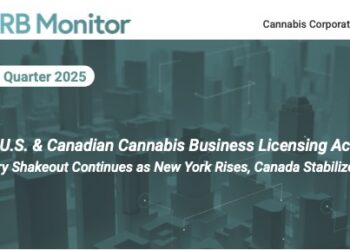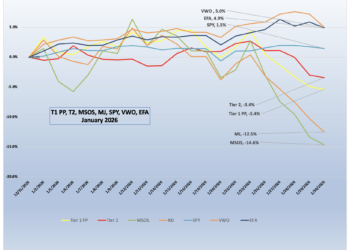Washington, D.C., regulators and law enforcement started the new year continuing its clampdown on illegal cannabis gifting shops by shutting down six retailers in January.
The Alcoholic Beverage and Cannabis Administration (ABCA) said in news releases that it partnered with the Metropolitan Police Department to serve closure orders and search warrants and confiscated cannabis products at the following unlicensed businesses between Jan. 15 and Jan. 29:
- Capital THC — 12.8 pounds of cannabis, 405 grams of THC vape cartridges, more than 144 grams of THC-laced edibles, 19 grams of THC concentrate, 1.1 pounds of echogenic mushrooms and 371 grams of mushroom edible products
- District Tobacco Shop — More than 5 pounds of cannabis, 105 grams of THC hookah filing, nearly 2 pounds of THC-laced edibles and 2 grams of THC oil
- Green Department — 8.9 pounds of cannabis
- Friends Smoke Shop — 1.4 pounds of cannabis, 42 grams of THC vape cartridges and 92 grams of mushroom-infused products
- The Garden D.C. — More than 13 pounds of cannabis, over 256 grams of THC-laced edibles, nearly 17 grams of THC capsules, 194 grams of THC vape cartridges and 79 grams of entheogenic mushrooms
- Hidden Gym — 20 pounds of marijuana, 1.5 pounds of THC-laced edibles and nearly 240 grams of THC vape cartridges
“Due to the businesses posing a credible and imminent danger to public health and safety, ABCA shuttered the businesses, including padlocking the doors,” ABCA said in a statement.
Washington voters approved adult-use cannabis in 2014 in an initiative known as I-71, but the U.S. Congress barred District officials from spending any money to enact the law and create an adult-use market. Businesses then started gifting up to one ounce of marijuana if customers bought an item such as a T-shirt or a service. Stores claimed cannabis was transferred without remuneration, which complies with the law, but gifting cannabis was a big part of their business.
Washington then enacted the Medical Cannabis Amendment Act of 2022, which gave ABCA enforcement powers and sought to bring vendors into the licensed medical cannabis market. Then Bill 25-872, granting enforcement authority to ABCA to shut down unlicensed businesses, took effect in July.
Since then, the joint enforcement action has led to 23 padlocked stores. Additionally, ABCA has issued 43 cease-and-desist orders and 98 warning letters to companies that did not apply for a license during the open application period last year.
Unlike in New York City, where a state judge halted its padlock program against licensed hemp retailers because of regulatory overreach and due process violations, Washington enforcement action does include official notices and search warrants.
The affected business owners may request a hearing before the ABC Board. The board may require the property owners to file a remediation plan or fine each property owner $10,000.
Unlicensed and licensed stores fight back in court
Fighting back, a group of unlicensed companies have sued Washington officials and seek a preliminary injunction to stop the enforcement actions.
The Alliance for Recreational Cannabis Entities (ARCE), representing seven companies, sued the District’s mayor, attorney general, ABCA, Department of Licensing and Consumer Protection director and Metropolitan Police Department chief alleging the program violates the U.S. Constitution and due process rights, causing irreparable harm.
In their Nov. 7 complaint in U.S. District Court for the District of Columbia, they claim that in order to apply for a license, they had to sign an affidavit attesting that they conducted illegal cannabis sales, “even if the applicant felt that this was an inaccurate portrayal of their business activity,” waiving their Fifth Amendment right against self-incrimination.
Alliance members said they were subject to inaccurate cease-and-desist orders, had hearings and lost.
On Jan. 30, U.S. District Judge Ana C. Reyes consolidated separate lawsuits filed by Safe House LLC, Organix LLC, Green Magic LLC, Elevated Tours LLC and AR Logistics LLC with the ARCE case.
Meanwhile, retailers who went through the licensing process are suing unlicensed shops for lost income. The Alliance of Legal Cannabis Entities-DC has filed eight separate lawsuits naming approximately 200 unlicensed stores and their landlords.
The most recent case, filed Dec. 26 in U.S. District Court of the District of Columbia, is against 37 defendants and seeks at least $12.25 million in disgorged profits. It includes Supreme Terpene, the first store to be shut down by the ABCA.












